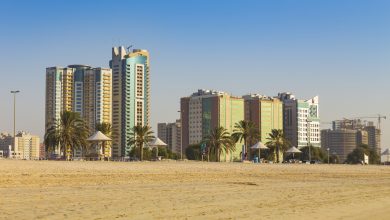For many Filipinos who work abroad, owning a property in the Philippines is a visible, tangible proof of years of hard work that they spent away from their family and the sacrifices that they had to make to ensure that they will have a place to call home when they retire.
The Filipino Times‘ ‘TFT Usapang OFW: Why should I invest in real estate in the Philippines?’, highlighted several common motivations that many Filipinos have when they decide to purchase a piece of property – regardless if that’s a condo, house or lot, or even just an empty lot for future use.
Maribel Curaming, Country Manager – Europe, Ayala Land International Marketing SRL, revealed that 8 out of 10 OFWs investing in real estate avail it for passive income. Others just want a place where they can retire after spending several years away from the country.
“It’s 80-20. 80 (percent) talaga na for their personal use or habang nag-a-abroad ang mga OFWs ay pinapaupahan ang bahay for additional income and 20 percent naman yung for retirement,” said Curaming.
She further said that many of the OFWs she often spoke to and advised through the years fall in one or all of the five main reasons why they want to begin investing in real estate back home, as follows:
Independence. Curaming stated that the majority of real estate investors overseas have a need to make money and to create wealth to attain two kinds of independence: Financial and Freedom from others’ influence.
“Financial independence is the dream of many people. In real estate, this is being achieved once the passive incoming from his/her properties, exceeds his/her monthly expenses. Though this may seem a long, risky, and uphill climb, it’s definitely possible,” said Curaming.
She furthered that many OFWs, especially newly-weds, also wish to experience being free from the ‘control’ of their in-laws, which is why they move out to their new homes. This proves the need of many OFWs to make their own decisions out of influence from their in-laws, which happens often if they live under the same roof.
Passive income. When Filipinos begin renting out their homes, they begin to earn money out of their properties. Once expenses are deducted, this additional monthly cash flow becomes their ‘passive income’.
This way, properties can be self-liquidating assets once they are leased and/or rented. Curaming states that earning this passive income gives owners that much-needed leeway and time to focus on other more important matters.
“Having passive income also gives you free time to do things you are passionate about,” said Curaming.
Capital Appreciation. Individuals who invest in real estate get to witness the value of their assets rise over time, thus providing the added benefit of capital appreciation especially as decades pass by.
“The longer you hold on to your real estate, the more money you will make,” advised Curaming.
Tangible Investment. This is perhaps the most fulfilling experience of OFWs once they see the fruits of their efforts for the very first time. Having a home is something that OFWs can touch, see, smell, experience, and enjoy.
“Real estate has a high tangible asset value. There will always be value in your land, and value in your home,” said Curaming.
Sense of Fulfillment. After many years of paying and funding their real estate investment, OFWs give themselves a pat-on-the-back when they see that their hard work and effort has paid off through real estate. It is this sense of fulfillment that gives them pride and joy not just for their personal happiness, but more importantly, for the happiness of their loved ones as well.
“An investment in real estate is not only a safe financial investment, it is also an investment that can provide years of fun, happiness, and priceless memories that will last a lifetime,” said Curaming.
Worthwhile investments
Curaming added that OFWs who finish funding house-and-lot investments for their retirement proceed to buy condominiums not for their personal use, but as an additional means of income.
“Mas maraming naunang mag invest sa house and lot but we were really happy kasi after nila mag-invest sa house and lot meron na rin silang condominiums ngayon. If you want na for rental, I suggest you buy a condo. Less expensive din kasi ang condominium especially pagdating sa maintenance. It’s really a good investment,” Curaming said.
Statistics from Colliers, an internationally-renowned commercial real estate firm and think tank, support Curamin’s clain as majority of the condominiums in Metro Manila as of April 2021 are funded by remittances from Overseas Filipino workers – thus proving its ongoing demand.
“Colliers notes that remittances from Overseas Filipino Workers (OFWs) continue to drive demand for affordable to mid-income (PHP1.7 million to PHP5.99 million or USD34,000 to USD119,800) condominiums in Metro Manila. Developers will likely continue to cater to families that receive remittances from abroad. OFW remittances continue to be one of the key drivers of residential demand,” read the study from Colliers.
In addition, data from the Bangko Sentral ng Pilipinas from January to May 2021 further support that OFWs have been funding their real estate investments. Remittances from OFWs have increased for the 4th straight month, peaking in May 2021 with an increase of 13%.
Experts have expressed optimism with a positive forecast that remittances will grow by 7% this 2021. To date, OFWs have remitted at least $12.28 billion from January to May 2021, with OFWs in the UAE ranking sixth on the Philippines’ largest sources of remittances.
While a huge chunk of these remittances go to an OFW’s family expenses such as groceries, electricity and other bills, OFWs who have been investing in real estate also ensure that they allot a considerable portion of their monthly payments for their properties.






